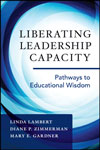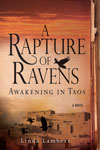« Arriving Home…Cultural Re-entry | A Remarkable Holiday gift chronicles the Flight into Egypt »
The Personal Meaning of John F. Kennedy
In the fall of 1959, I was an officer in the Young Democrats and a student at Pittsburg State College in Kansas, when the radiant, youthful man sprinted down the stairs of a small plane at the local airport. The crowd split in half as John F. Kennedy moved confidently into our midst, his eyes scanning the crowd, resting momentarily on each student and local politician. As our eyes met, I felt the heat of recognition. He spoke for less than five minutes, answered a few questions, turned—then he was gone.
Those mesmerizing moments were a turning point in my life. Since I had marched in a campaign for a Democratic governor when I was in the third grade, I can’t say it was the moment I became politically conscious, but it was the instant in which I felt and deeply understood the role of government in a great nation and my responsibility to it. His confidence was contagious, his vision compelling. I, with others, watched as his vision manifested itself in the Peace Corps, the space program (with a moon landing in 1969), a nuclear test ban treaty, an end to segregation in interstate travel and federal housing (by executive order), creating the Medal of Freedom, and bringing the arts into the White House. In October 1962, the world watched breathlessly as he avoided a nuclear tragedy in the Cuban Missile Crisis. His actions captured the essence of his vision and set forth the path ahead. –then he was gone.
With Kennedy’s assassination, on this day 50 years ago, a great sadness appended itself to my being. I felt the fragility of life and history, the naïveté of “happily ever after.”
Linda
Leave a Reply





 Conceptions of leadership have evolved, and Liberating Leadership Capacity captures these new ideas and provides a pathway to create sustainable systems of high leadership capacity. Available April 2016 from
Conceptions of leadership have evolved, and Liberating Leadership Capacity captures these new ideas and provides a pathway to create sustainable systems of high leadership capacity. Available April 2016 from  A sizzling new novel set in Taos, New Mexico. The third in the Justine Trilogy, preceded by the award-winning, The Cairo Codex and The Italian Letters. Buy it at your local independent bookstore,
A sizzling new novel set in Taos, New Mexico. The third in the Justine Trilogy, preceded by the award-winning, The Cairo Codex and The Italian Letters. Buy it at your local independent bookstore, 
